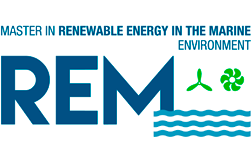Admission
The JPB will be responsible for coordination of admissions between partners and will follow the policy and procedures provided by the UAB of each university. Each UAB is sovereign and will provide policy and procedures according to its own rules.
- The Programme is open to holders of a first cycle higher education degree from universities in the field of:
– Naval Engineering
– Naval Achitecture
– Maritime Engineering
– Nautical and Maritime Transport
– Electrical Engineering
– Electric Power Engineering
– Electronic Engineering
– Automatic and Industrial Electronic Engineering
– Control System Engineering
– Aerospace Engineering
– Civil Engineering
– Renewable Energy Engineering
– Energy and Environmental Engineering
– Industrial Technology Engineering
– Industrial Organization Engineering
– Mechanical Engineering
– Electromechanic Engineering
– Applied Mathematics
– Physics
- An applicant with a mother tongue other than English needs to prove that he/she has sufficient fluency in English. Fluency in English will be established according to the Language Policy.
- Specific individual requirements will be established for each applicant, according to his/her qualifications/prior learning, selected Modules and expected academic and professional prospects. These individual requirements will be developed by the JPB (through a system of mentor assignment) for pre-registered applicants.
- The relevance of the BSc degree (or equivalent) of the applicant will be assessed. In cases of doubt regarding the quality of the issuing institution, external advisors will be consulted in order to establish the status and quality of the institution concerned.
- Students will be selected based on the quality of their degree and an applicant’s grade average from his/her previous study should establish the high qualification level of the applicant and will normally be a grade average of ‘B’ or higher in terms of the ECTS grading scale.
- An applicant must show evidence of maturity, stability, adaptability, self-discipline and strong academic motivation. This can be achieved by providing a letter setting out the reasons he/she is motivated to participate in the programme. Relevance of work experience and future career objectives, as well as additional information provided by the mentor will also be taken into consideration by the JPB for reaching a final decision.
Offers will be made only to those applicants that satisfy the requirements for entry set out above, and for whom the supplemental information is deemed satisfactory according to the JPB
In order to facilitate evaluation and determination of suitability of students for the Programme, the partners will provide to each other current syllabuses, programme descriptions and any other relevant material to assist in ensuring that the Parties concur in relation to the level of knowledge, skills, academic qualifications and English language proficiency required to ensure that the part of the Programme taught at one Party is compatible with progression onto the part of the Programme taught at another Party.
The application procedure for the Programme will be centralised by the Coordinator which will collect the applications and make all preparations for the selection process, which is a responsibility under the JPB.
The JPB will evaluate each applicant’s capability to complete the Programme successfully in two years. All decisions on the acceptance of student applications to study on the Programme will be made by a majority decision of the JPB which decision must also have the unanimous agreement of the Parties. All Students must satisfy the requirements of all the organizing universities for admission and progression and provide supporting documentation and proof of the required level of English language proficiency.
The JPB shall complete the selection of students for enrolment on the Programme by beginning of April in each year. The students selected must have the original supporting documentation listed in the application requirements.
A student who participates in the Programme is required to register and enroll as a student at the universities where he or she is attending the Programme.
A student participating in the Programme shall be subject to the rules and regulations of the university at which he or she is registered and shall abide by and be subject to the rules and regulations of the Programme and relevant national laws, in particular but not limited to those pertaining to student visas. A students participating in the Programme will be granted the same rights and privileges enjoyed by other students registered at the Party at which the student is registered.
[last update = 19/11/2018]
